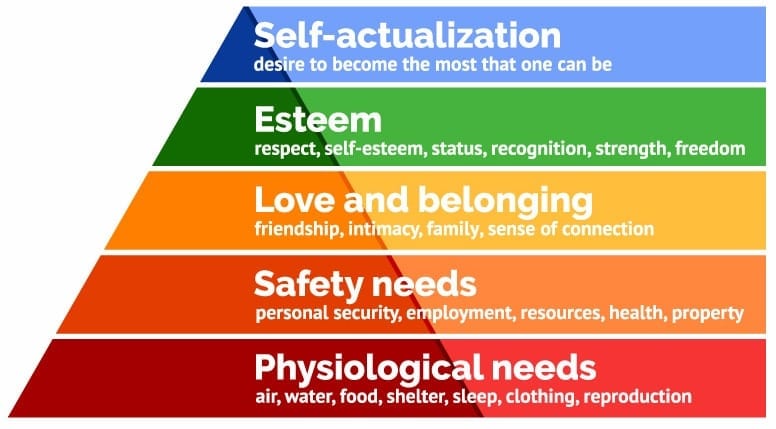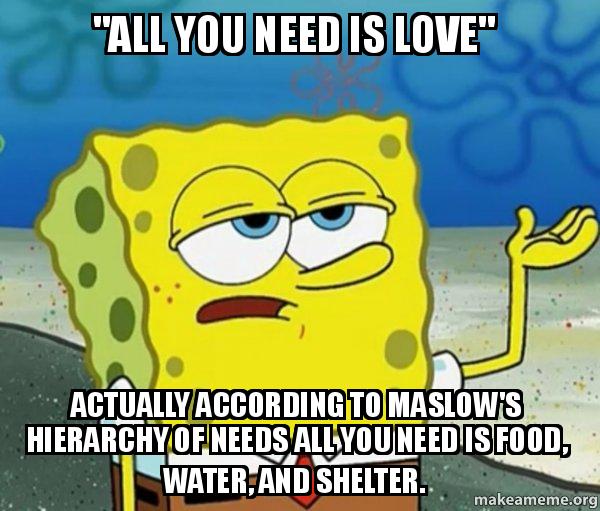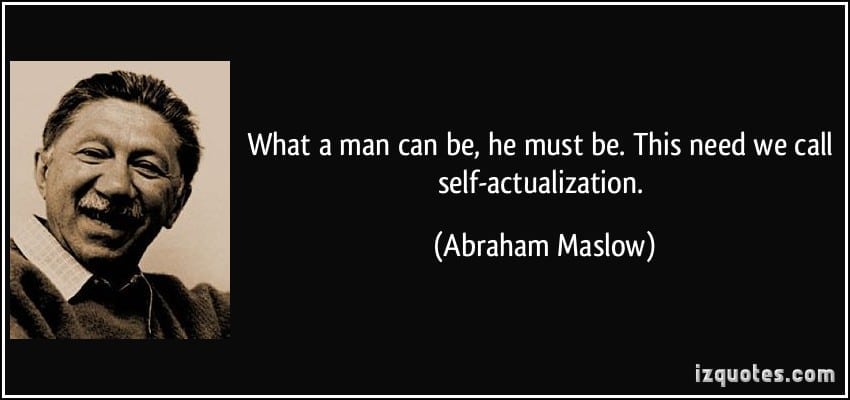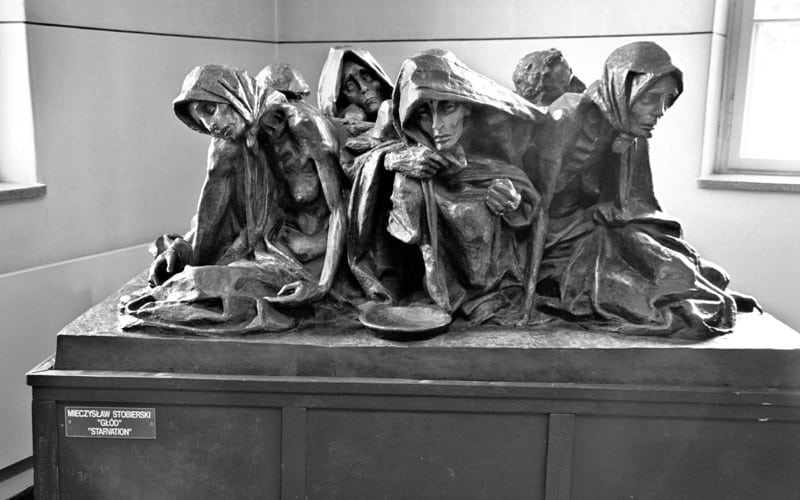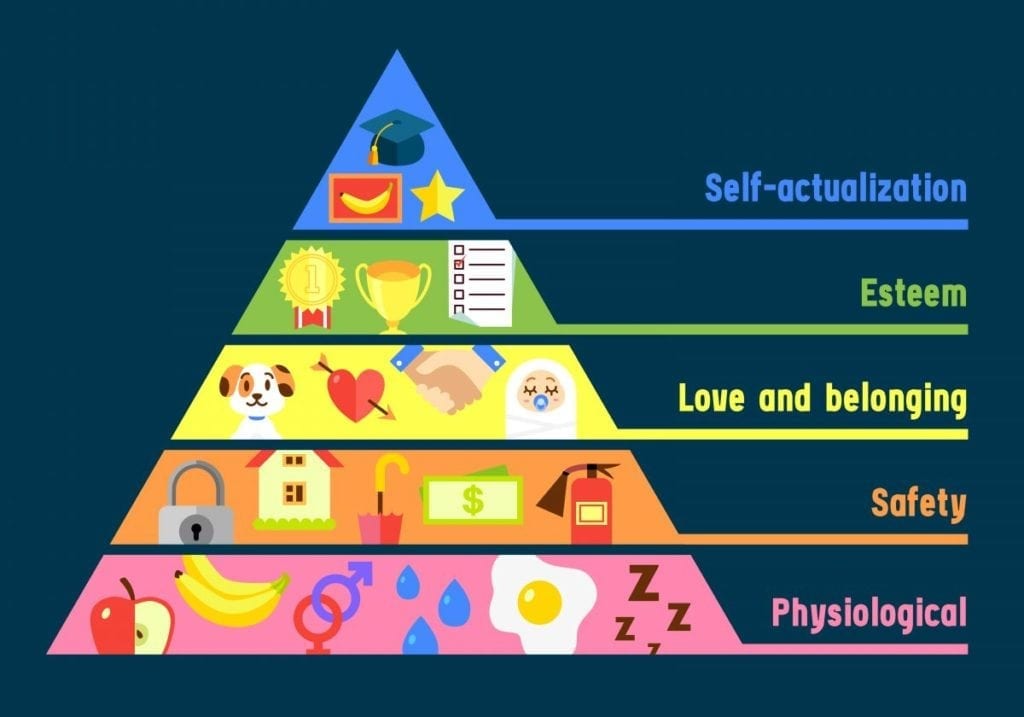Abraham Maslow’s Hierarchy of Human Needs Theory is well famous among those who are familiar with the topic of Motivation in Psychology. It simplifies the most diverse world of human needs to just five levels, and through it, the theory enables one to accurately point out their own needs and channel their motivational energy into the right direction.
Maslow’s Theory of Motivation categorizes needs into five stages, with the bottom-most need demanding the most immediate satisfaction. The stages include:
- Physiological Needs.
- Safety Needs.
- Social Needs.
- Esteem Needs.
- Self-actualization Needs.
Table of Contents
Categorization Of Needs In Maslow’s Pyramid:
In Maslow’s Pyramid, the bottom-most need requires the most immediate attention and satisfaction, followed by the one above it and so on. However, Maslow has categorized his five needs as a whole into two parts: Deficiency Needs and Growth Needs.
Difference Between Deficiency Needs and Growth Needs:
As the name suggests, Deficiency Needs are those needs which without their satisfaction, leads the person to feel severely anxious and “out of place”. Their presence is necessary for survival and also a healthy living experience, while their deficiency brings forward feelings of complete unsatisfactory. The rate of how unsatisfied a person feels in the absence of a deficiency need is related to how close the need is to the bottom of Maslow’s pyramid. The shorter the distance between the need and the bottom, the greater the feeling of unsatisfactory. These needs are the first four (or the bottom four, according to the pyramid) existing of Maslow’s stages, i.e. Physiological, Safety, Social and Esteem Needs.
On the other hand, Growth Needs are those referring to internal, personal growth of a person. This need is not necessary for survival, nor does its absence lead to any sort of dissatisfaction. However, the need results from a person’s wish to expand or grow mentally, in their capabilities and skills, recognizing and achieving their full potential. This category includes the last and fifth stage of Maslow’s pyramid, i.e. Self-actualization Needs.
The Five Stages And Their Motivational Forces:
As we know, Abraham Maslow’s Pyramid targets to understand a person’s behavior by recognizing which need stage they are on, as an individual act to satisfy needs. Maslow’s Hierarchy of Human Needs Theory consists of five human need stages, which are as follows:
1) Physiological or Basic Needs:
These are the most basic of survival needs for a human, and since they require the most immediate satisfaction, they are situated at the most bottom of the pyramid. Physiological Needs include Food, Water, Shelter, Sleep, Excretion, etc. A person stuck in this stage of needs will only be motivated to satisfy his physiological needs, rather than worrying about the satisfaction of the needs existing in the other stages.
2) Safety Needs:
The second level in Maslow’s pyramid is a person’s need for safety. Safety Needs include: a sense of security of the self, laws, order, policies, job-safety, etc. A person stuck on this level of needs will be entirely motivated to fulfill or satisfy his safety needs, rather than giving thought to the satisfaction of the needs on other levels.
3) Social Needs:
Man is a social animal. We humans are programmed to live together while being the only species with the ability to effectively communicate. Thus, we have Social Needs as well, including: the need to make and maintain strong bonds with other humans, develop relationships along with romantic relationships, etc. A person stuck on this level will be motivated to find bonds and relations which will satisfy his social needs.
4) Esteem Needs:
For an average person, a good sense of self or a healthy rate of self-esteem is a necessity if one should wish to live a healthy life. This stage in Maslow’s Need Theory includes both self-esteem and respect from others; it includes self-confidence, respect, good reputation, etc. A person stuck on this level will be motivated to work towards increasing all these factors; their actions will be influenced by their need for esteem, i.e. they will be motivated towards performing such tasks that will that will increase their own self-esteem, as well as the respect they receive from others.
5) Self-Actualization Needs:
After the person has completely achieved all their deficiency needs, he will enter his final stage in Maslow’s theory of motivation. Now, this person will have a need to expand into himself, i.e. realize all his potential and work towards achieving them. Their motivation will revolve around finding ways to achieve these potentials and keep on growing.
Maslow’s Hierarchy And Everyday Life:
So, we have read and discussed about Abraham Maslow’s theory in detail, but the question remains, how can we really link it to everyday life? Following are some real-life examples, revolving around Maslow’s Theory.
Physiological Needs basically means that a person should have enough or the satisfactory amount of food, water, shelter, sleep, etc. Most homeless persons, or those denied of their rights are the subjects stuck in this level. For example: During the Holocaust, the people in Auschwitz were barely given any food or water and neither did the women have much place for any bodily excretions. They settled for eating and drinking anything that they could find, regardless of it being clean or unclean, and even excreted their bodily wastes into their food bowls.
In Safety Needs stage, after the person has their basic needs fulfilled, they look for a secure place to stay. For example: A victim of abuse running off and hiding at a safe place, well away from their abuser.
An example for Social Needs is: A well-fed and well-settled person now looks for people to connect with for feeling of belonging. They search for friends in order to be “a part of” something.
An Esteem Needs example: A person, well satisfied in all their previous need stages, now looks for a positive reputation and respect from others as well as from their own-self.
Lastly, an example for Self-actualization Needs: A person satisfied in all his previous levels, now looks to improve his own self and his ways of thinking.



